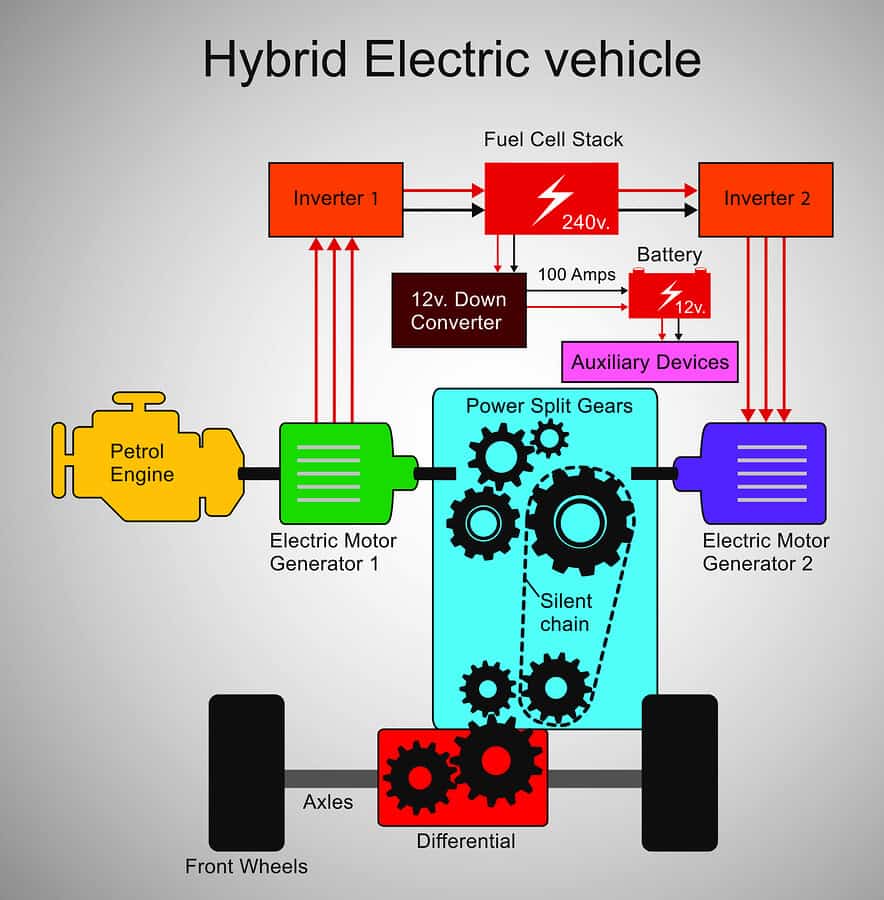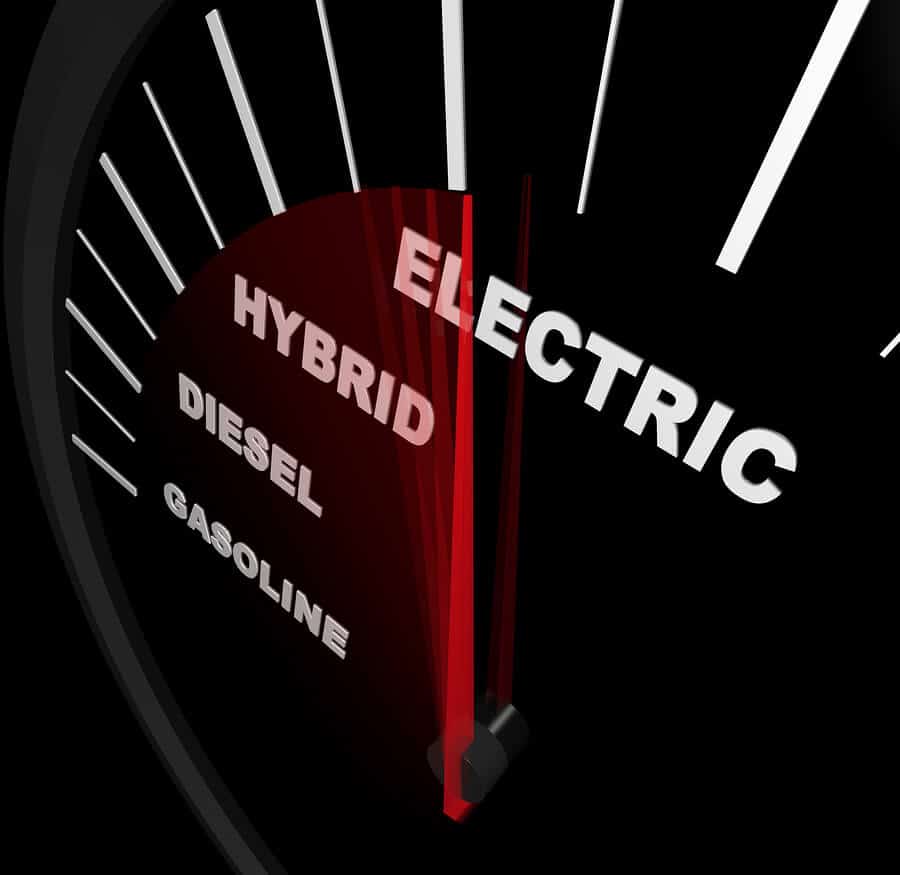Should you use an electric or hybrid vehicle?
As a young professional in a bustling city, the thought of contributing positively to the environment fills me with purpose.
My daily commute is about 20 miles, and it's become clear to me that making an eco-conscious choice for my next vehicle is not just desirable, but essential.
Electric and hybrid cars have been on my radar, and, trust me, I've been combing through every article and forum discussing these technological marvels.
In the sea of traffic that ebbs and flows through the city streets, I dream of whizzing through in my electric haven, leaving behind no emissions. The allure of electric cars with their smooth, silent ride and the sheer joy of evading the gas station altogether, seems almost poetic.
Plus, there’s a sense of pride I feel when I imagine myself behind the wheel of a stylish Tesla or a Nissan Leaf. But, as a dweller of the concrete jungle, there's a practical aspect to consider. I live in an apartment with no charging point and worry about “range anxiety” on days when I might have to travel more than usual.
What is Better a Hybrid or Plug-in Hybrid
What Are Electric Vehicles?
Electric Vehicles, often abbreviated as EVs, are a form of transport that exclusively harnesses electricity as their primary source of propulsion.
These innovative vehicles are a radical departure from traditional gasoline-dependent vehicles, completely eliminating the need for petrol or diesel fuels.
At the core of each EV lies a high-capacity battery, typically a lithium-ion battery, which effectively serves as the ‘fuel tank' of the vehicle. The battery stores the electrical energy which is utilized to power the electric motor.
Unlike traditional combustion engines that generate power through burning fuel, electric motors convert electrical energy directly into mechanical energy. This conversion is far more efficient, making electric vehicles significantly more energy-efficient than their conventional counterparts.
Recharging these batteries doesn't involve a trip to the gas station; instead, EVs are plugged into an electrical power source. This could be a dedicated EV charging station or even a standard home electrical outlet.
The process replenishes the electrical energy used during the vehicle's operation, similar to how you would recharge a cell phone or laptop.
What Are Hybrid Vehicles?
Hybrid vehicles represent a fascinating blend of conventional and futuristic automotive technologies. They are designed to strike a balance between the familiarity and range of gasoline vehicles and the efficiency and sustainability of electric vehicles.
At the heart of a hybrid vehicle are two power sources: a traditional internal combustion engine that runs on gasoline, and an electric motor powered by a battery pack. This dual-motor system sets hybrid vehicles apart from conventional vehicles, allowing them to utilize both engines based on the driving conditions.

Comparing Electric and Hybrid Vehicles
To determine the best option between electric and hybrid vehicles, we'll compare them based on cost, efficiency and range, environmental impact, maintenance, and charging infrastructure.
Cost
Electric vehicles generally have a higher upfront cost compared to hybrid cars. This is primarily due to the cost of the batteries used in EVs. However, this initial cost can often be offset by lower operating costs, as electricity is usually cheaper than gasoline, and EVs require less routine maintenance.
Hybrid vehicles are typically priced between conventional cars and EVs. They are more affordable upfront, and also offer fuel savings due to their efficient use of both gasoline and electric power.
Efficiency and Range
When it comes to efficiency and range, both vehicle types have their strengths and weaknesses. Electric vehicles are generally more energy-efficient than hybrids as they convert a higher percentage of the electrical energy from the grid to power at the wheels. However, EVs can suffer from range anxiety – the fear that the battery will run out of power before reaching your destination or a charging station.
Hybrid cars, on the other hand, tend to have a longer range than most electric vehicles because they can rely on gasoline when the battery depletes. They are also more fuel-efficient than conventional cars due to their dual power source.
Environmental Impact
Both electric and hybrid vehicles are designed to reduce carbon emissions, a major contributor to global warming. Electric vehicles produce zero tailpipe emissions, while hybrid vehicles emit less CO2 compared to traditional cars due to their efficient use of gasoline and electric power.
However, it's crucial to consider the source of electricity for charging EVs. If it comes from coal-fired power plants, the carbon footprint of EVs could be higher than hybrids.
Maintenance
Electric vehicles tend to have lower maintenance costs than hybrids. They don't have internal combustion engines, which eliminates the need for oil changes, cooling system flushes, and other routine maintenance associated with gasoline engines.
On the other hand, hybrid vehicles require maintenance for both the electric and gasoline systems but can still cost less to maintain than traditional vehicles.
Charging Infrastructure
A critical factor to consider when choosing between an EV and a hybrid is the charging infrastructure in your area. While electric vehicles can be charged at home, longer trips may require using a public charging station.
Hybrid vehicles, with their gasoline backup, don't rely heavily on the charging infrastructure, providing flexibility when traveling long distances.
Hybrid vs Electric Cars Environmental Impact
When considering the environmental impact of hybrid versus electric cars, both options represent a greener alternative compared to traditional gasoline-powered vehicles. However, electric cars generally have a lower environmental impact in terms of emissions.
Fully electric vehicles produce zero tailpipe emissions, which leads to improved air quality, particularly in urban areas. Additionally, as the electricity grid becomes cleaner with a higher proportion of renewable sources, the overall emissions associated with charging an electric vehicle will further decrease.
On the other hand, hybrid cars, while more fuel-efficient and producing fewer emissions than traditional gasoline cars, still rely on gasoline to some extent and produce tailpipe emissions. The environmental benefits of a hybrid compared to an electric vehicle depend on the driving patterns – for short city commutes where the electric mode is primarily used, hybrids can be quite efficient
However, for long distances where the gasoline engine is mainly in use, they do not offer the same level of emission reductions as electric cars. It's also worth considering the full life-cycle emissions of both vehicles, including manufacturing and disposal, as battery production for both electric and hybrid vehicles does have an environmental impact.
Hybrid vs Electric Cars Pros and Cons
Electric Vehicles
Electric vehicles (EVs) are increasingly popular as technology advances and societal awareness about environmental sustainability grows. However, as with any technology, they come with their own set of pros and cons. Below is a detailed analysis of the benefits and drawbacks of owning an electric vehicle.
Check out our post on Switching to Electric Cars
Pros of Electric Vehicles
- Exclusively Powered by Electricity
- Operates entirely on electricity, eliminating the need for gasoline or diesel.
- Significant cost savings on fuel.
- Reduced carbon footprint and environmental impact.
- Lower maintenance due to no need for oil changes or transmission fluid replacements.
- Lower Maintenance Needs
- Fewer moving parts than gasoline engines.
- Reduced frequency of maintenance.
- Savings from absence of oil changes, spark plug replacements, etc.
- Simplified mechanics leading to less wear and tear.
- Financial Incentives
- Rebates, tax credits, and exemptions offered by governments.
- Potential reduction in the upfront cost of electric vehicles.
- Quiet Operation
- Exceptionally quiet, enhancing driving experience.
- Contributes to reduced noise pollution in urban areas.
Cons of Electric Vehicles
- Expensive
- Higher initial purchase cost compared to traditional gas-powered vehicles.
- May be unaffordable for some buyers despite fuel savings.
- Less Range
- Generally lower range than gas-powered vehicles.
- Limited charging infrastructure, impacting long-distance travel.
- Range anxiety due to fewer recharging options.

Hybrid Vehicle
Hybrid vehicles, which harness the power of both gasoline and electricity, are becoming increasingly prevalent as a stepping stone toward fully electric vehicles. However, like all technologies, they have their advantages and disadvantages. Below is a comprehensive look at the benefits and drawbacks of hybrid vehicles.
Pros of Hybrid Vehicles
- Dual Power Source
- Combination of gasoline and electric power.
- Efficient for both short city trips (electric) and longer journeys (gasoline).
- Reduced Emissions
- Lower emissions compared to traditional gasoline vehicles.
- Zero tailpipe emissions in electric mode.
- Fuel Economy
- Efficient use of gasoline and electric power.
- Reduced fuel consumption, especially in city driving.
- Extended Driving Range
- Longer distances possible compared to pure electric vehicles.
- Ideal for long-distance travel without frequent refueling or recharging.
- Smaller, More Efficient Engines
- Lighter and more efficient than conventional gasoline engines.
- Complements electric motor for overall efficiency.
- Access to Carpool Lanes
- Eligibility for High Occupancy Vehicle (HOV) lanes in some regions.
- Time-saving and stress-reducing during peak traffic.
- Resale Value
- Higher resale values due to growing eco-friendly vehicle demand.
Cons of Hybrid Vehicles
- Emissions are Still a Concern
- Lower, but not zero emissions.
- Not as environmentally friendly as pure electric vehicles.
- Higher Upfront Costs
- More expensive than comparable conventional vehicles.
- Higher purchase price due to advanced technology.
- Potential for Increased Fuel Consumption on Long Trips
- Less fuel-efficient on long trips when relying on gasoline engine.
- Efficiency decreases if battery depletes and no charging station is available.
FAQ: Electric vs. Hybrid Cars
1. Is it better to have an electric or hybrid car?
The choice between an electric and a hybrid car depends on your specific needs and circumstances. Electric cars are better for the environment, offering zero tailpipe emissions and typically lower operating costs. However, they may pose range issues and require access to charging infrastructure. Hybrid cars, while still more environmentally friendly than traditional gasoline vehicles, provide the convenience of longer range and easier refueling, making them a practical choice for those without reliable access to charging stations.
2. Should I buy electric or hybrid in 2023?
In 2023, the decision to buy an electric or hybrid vehicle hinges on several factors. Consider your driving habits, daily commute distance, access to charging stations, and environmental priorities. Electric vehicles are advancing rapidly in terms of technology and infrastructure, making them an increasingly viable option. However, hybrids remain a strong choice for those seeking a balance between eco-friendliness and practicality, especially in areas where charging infrastructure is still developing.
3. What is the disadvantage of a hybrid car?
A notable disadvantage of hybrid cars is that they still rely on gasoline, meaning they produce some emissions and contribute to pollution, albeit less than traditional vehicles. Additionally, hybrids can be more expensive upfront compared to standard gasoline cars, and they may require maintenance for both electric and gasoline powertrains, potentially leading to higher long-term maintenance costs.
4. Are hybrids more practical than electric cars?
Hybrids can be more practical than electric cars, especially in areas with limited charging infrastructure. They offer the flexibility of using gasoline for longer trips or when charging options are unavailable. This dual power source reduces the concern of range anxiety associated with electric vehicles. However, as charging infrastructure improves and battery technology advances, electric cars are becoming increasingly practical.
5. Is hybrid or electric better for long distance?
For long-distance travel, hybrids currently have an advantage due to their extended range and ease of refueling with gasoline. Electric vehicles, while continually improving in range, still face challenges with charging times and the availability of charging stations on long journeys. However, this is rapidly changing as infrastructure develops and battery technology advances.
6. Do hybrid cars last longer?
Hybrid cars are generally built with high-quality components and advanced technology, often resulting in a longer lifespan. However, the longevity of a hybrid car also depends on maintenance, driving habits, and environmental conditions. Hybrid batteries, a crucial component, have shown to last for a significant amount of time, often with warranties covering up to 8-10 years. Regular maintenance and careful driving can further enhance the lifespan of a hybrid vehicle.
Electric or Hybrid Vehicle – Final Thoughts
The weight of my decision has been balanced meticulously on the scales of aspiration, practicality, and environmental consciousness.
The all-electric dream beckons with its promise of silent nights in the city and a cleaner, greener world. However, the whisper of a hybrid lingers, with its tender assurance of flexibility and reliability.
At the heart of this junction, I realize that my decision would not just be about a car, but an echo of my values and the footprints I leave behind.
The city with its towering skyscrapers, ever-bustling roads, and tapestry of life is where I thrive, and contributing to its air and life seems like an ode to my own journey.
I've made my choice – a plug-in hybrid. It serves as a bridge between my electric dreams and practical life. It lets me glide silently on electric power through my daily commute while holding my hand on the open roads with its gasoline heart.
As the charging infrastructure grows and as my life evolves, maybe someday the scales will tip fully towards electric. But for now, the symphony of my life has found its melody in a harmonious blend that is the plug-in hybrid.
And as I drive through the streets, I know that with every mile, I'm not just moving forward, but doing it in a way that respects the song of the earth and my role in it.
Through the lights and sounds of the city, my car and I become a part of a larger story – a story of dreams, change, and the precious earth we share.
Sources
https://www.energy.gov/eere/electricvehicles/electric-and-hybrid-vehicles

